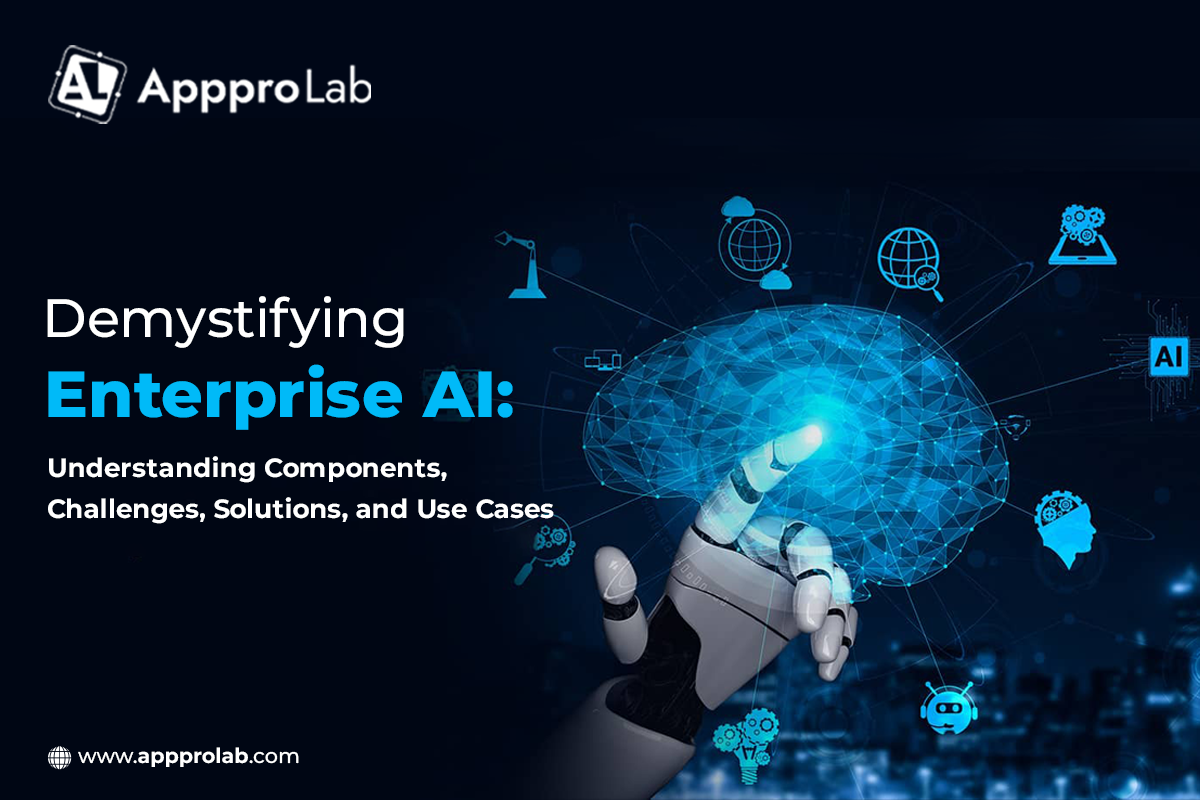
In today's digital landscape, enterprise AI (Artificial Intelligence) is revolutionizing how businesses operate, innovate, and deliver value to customers. But what exactly is enterprise AI, and how does it work? Let's break it down into simple terms, exploring its components, challenges, solutions, and real-world use cases. Understanding Enterprise AI: Components Enterprise AI encompasses various technologies, including machine learning, natural language processing (NLP), computer vision, and deep learning. These components work together to analyze data, extract insights, automate processes, and make intelligent decisions. Challenges in Implementing Enterprise AI While the potential benefits of enterprise AI are vast, implementation comes with its own set of challenges. These may include data quality and accessibility, talent shortages, integration with existing systems, privacy and security concerns, and regulatory compliance. Solutions to Overcome Challenges To address these challenges, organizations can take proactive steps such as investing in data quality and governance practices, upskilling employees in AI and ML development services, partnering with experienced AI vendors, ensuring compliance with regulations like GDPR and CCPA, and prioritizing security measures. Real-World Use Cases of Enterprise AI Enterprise AI is being applied across industries to streamline operations, enhance customer experiences, and drive innovation. Examples include predictive maintenance in manufacturing, personalized recommendations in e-commerce, fraud detection in finance, virtual assistants in healthcare, and autonomous vehicles in transportation. Distinguishing Between Regular AI and Enterprise AI Regular AI, often associated with consumer applications like virtual assistants and recommendation systems, focuses on providing personalized experiences and convenience to individual users. This type of AI typically relies on algorithms trained on vast amounts of user data to deliver relevant results. While effective for consumer-facing applications, regular AI may lack the robustness and scalability required for enterprise-level operations. Enterprises deal with complex data environments, diverse user bases, and stringent security and compliance requirements, demanding more sophisticated AI solutions. On the other hand, enterprise AI is specifically tailored to meet the unique needs and challenges of businesses. It encompasses a broader range of technologies, including machine learning, natural language processing, computer vision, and deep learning, to address complex business problems. Unlike regular AI, which may focus on individual user interactions, enterprise AI is designed to analyze large volumes of data from multiple sources, automate processes, and make data-driven decisions at scale. Enterprises leverage AI to optimize operations, enhance customer experiences, improve decision-making, and drive innovation across various industries. Whether it's predicting equipment failures in manufacturing, detecting fraud in finance, or personalizing marketing campaigns in retail, Enterprise AI empowers organizations to unlock new insights, streamline processes, and stay ahead of the competition. Conclusion Enterprise AI holds immense potential to transform businesses by leveraging advanced technologies to analyze data, automate processes, and drive intelligent decision-making. While challenges exist, proactive measures and strategic investments in AI and ML development services can help organizations overcome barriers and unlock the full benefits of enterprise AI.